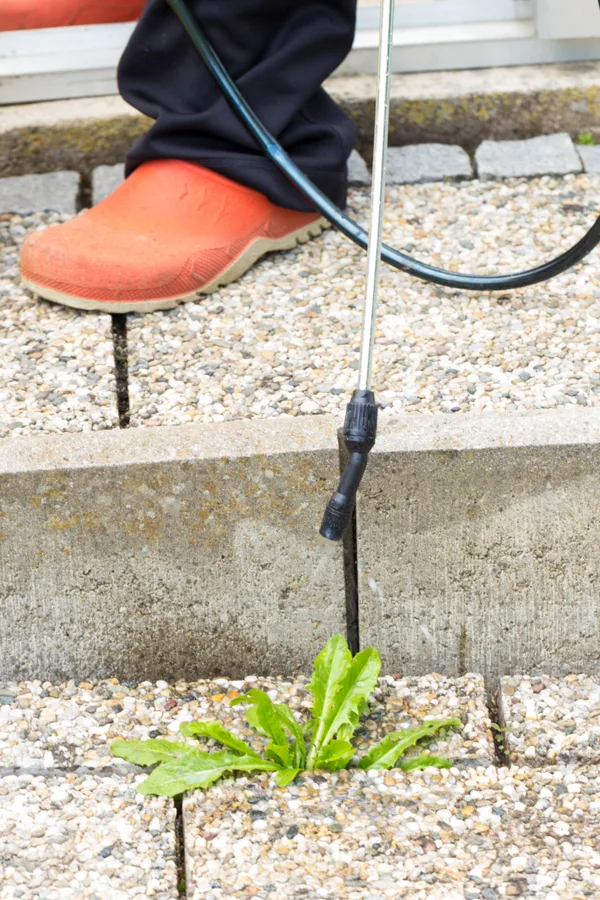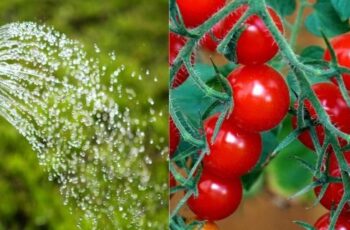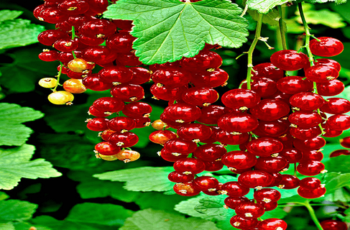Ad Blocker Detected
Our website is made possible by displaying online advertisements to our visitors. Please consider supporting us by disabling your ad blocker.
We’ve been using horticultural vinegar for years to keep weeds out of areas where we don’t want grass or flowers. It’s not only been incredibly effective at controlling weeds, but it also gives us peace of mind knowing we don’t have to rely on harsh commercial herbicides.

How To Stop Weeds With Vinegar
How To Use Horticultural Vinegar
For our homemade vinegar weed killer, we use a stronger solution known as horticultural or industrial-strength vinegar. While you can use regular vinegar from the grocery store, it’s not potent enough to fully eliminate weeds.
Standard vinegar has an acidity level of about 5%. At that strength, it can kill small weeds and even slow down larger ones, but it doesn’t have the power to kill the roots effectively.
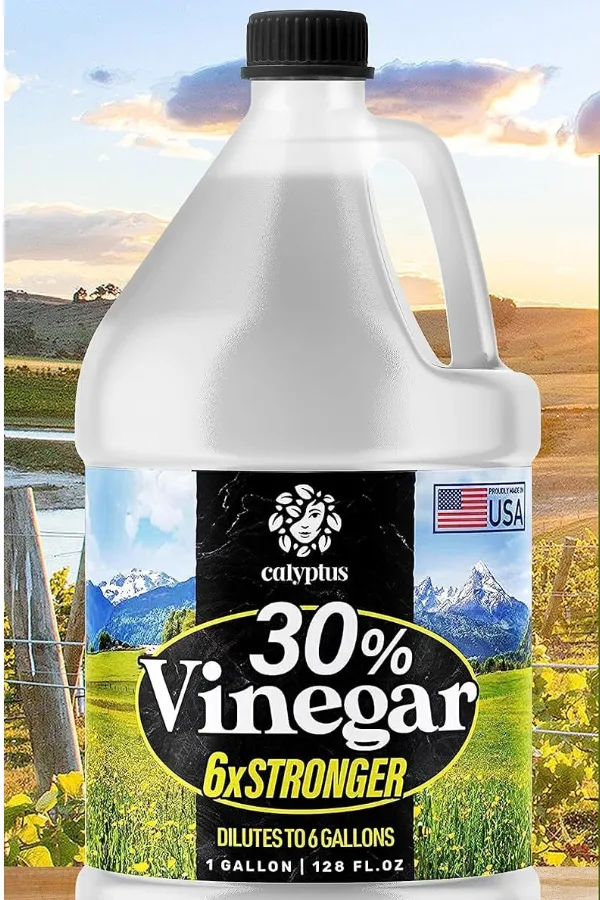
If you’re dealing with tiny weeds on a patio or driveway, the lower acidity versions of vinegar can work, but you’ll need to use them at full strength to see any results.
However, with a 5% acidity level, the weeds often die back but tend to grow back from the roots, leading to more spraying and more work. This is where the stronger vinegar comes in handy.
Horticultural or industrial vinegar is available with much higher acidity. You can dilute it for smaller weed problems or use it at full strength to tackle more stubborn and problematic weeds.
Mixing Vinegar With Water – How To Stop Weeds With Vinegar
You can buy horticultural vinegar online or at many home and garden centers. The acidity levels typically range from 20% to 45%, depending on the product.
We use a 30% strength solution from Calyptus. At full strength, 30% is powerful enough to kill weeds, so we usually dilute it by half, bringing it down to around 15% for most of our spraying. Affiliate Link: Calyptus 30% Pure Super Concentrated Vinegar
Diluting Horticultural Vinegar
When weeds are at their peak in the spring and early summer, we mix our vinegar weed killer with 1 part horticultural vinegar to 1/2 part water. This gives us a solution with about 20-23% acidity, which is strong enough to handle most weeds.
Keep in mind that vinegar is acidic, so always wear gloves and eye protection when mixing or handling the solution.
For particularly stubborn weeds, we use the vinegar at full strength. We apply it with a backpack sprayer for larger areas, but you can also use a handheld pump sprayer or even a spray bottle for smaller jobs.
As summer progresses and weed growth slows, we switch to a mixture of 1 part horticultural vinegar to 1 part water. We’ve found that a 15% acidity rate works well for regular weed control on our driveways and paths, making the spray more economical as well.
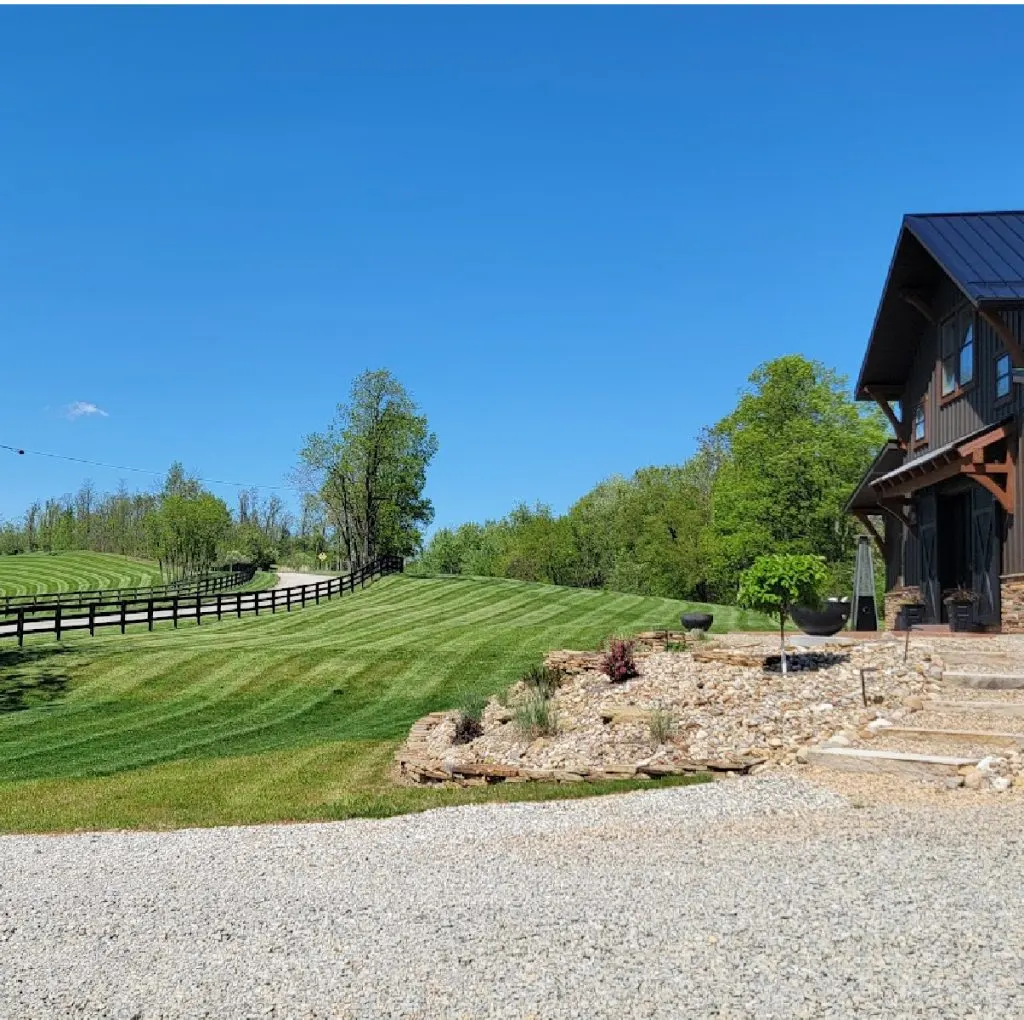
Spraying When Weeds Are At Their Weakest – How To Stop Weeds With Vinegar
When using a vinegar weed killer, sun and heat are your best allies. Just like flowers and vegetables, weeds are most stressed when the sun is shining brightly.
For the best results, spray weeds in the mid to late afternoon on sunny days—the hotter, the better! This is when plants are most vulnerable, and the vinegar can absorb more effectively, killing the weeds at a much faster rate.
It’s important to remember that both regular and horticultural vinegar solutions are non-selective, meaning they’ll kill anything they come in contact with. While they’re great for clearing weeds from sidewalks, walkways, and gravel areas, they’re not suitable for use on lawns or in densely planted areas.
We’ve occasionally used it in garden walkways for stubborn weeds, but we’re always careful to keep the spray away from our vegetable plants and growing areas.
